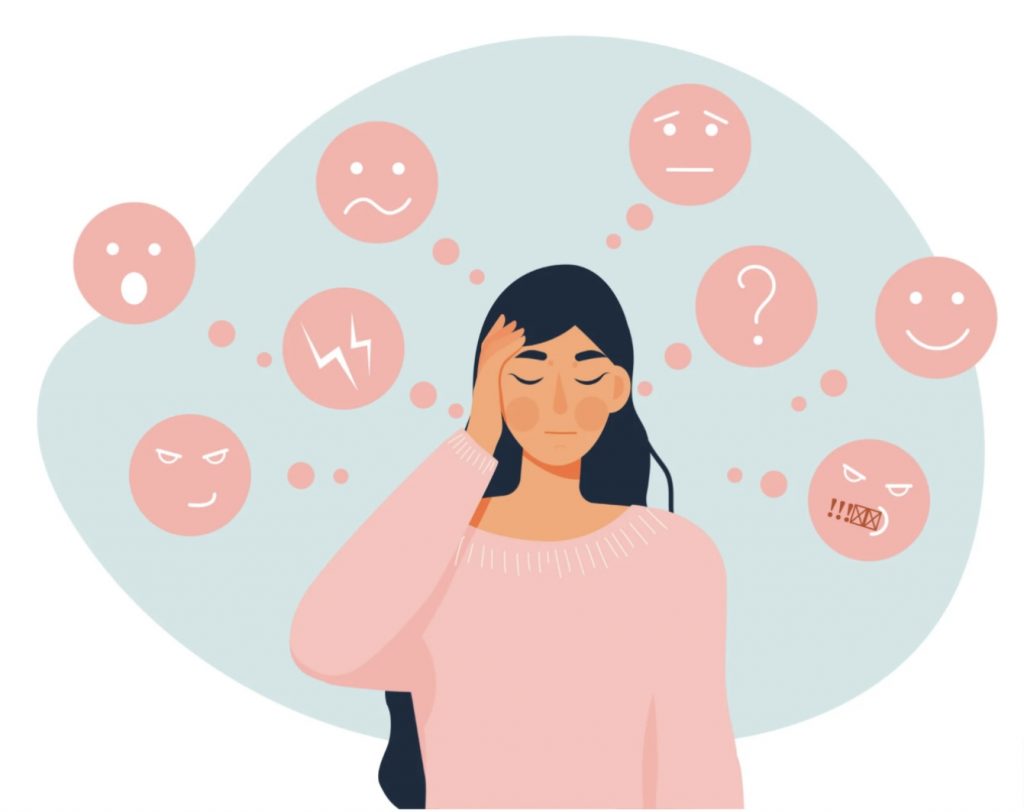Understanding and Coping with Mood Disorders – Depression & Bipolar Disorder

Mood disorders are a group of mental health conditions that primarily affect a person’s emotional state, causing persistent or extreme changes in mood, energy, and behaviour. While there are various types—such as Premenstrual Dysphoric Disorder, Disruptive Mood Dysregulation Disorder, and Cyclothymic Disorder—this blog will focus on Depression and Bipolar Disorder. We’ll explore what they are, their symptoms, and effective coping strategies.
Understanding Depression
Depression is characterised by persistent sadness, low mood, and feelings of hopelessness. For many, it can feel like carrying a heavy weight that makes even the simplest tasks overwhelming. Common symptoms include:
- Loss of interest in activities once enjoyed.
- Fatigue, sleep disturbances, and difficulty concentrating.
- Physical symptoms like changes in appetite, weight fluctuations, and unexplained aches or pains.
For those struggling with depression, everyday life can feel exhausting—something as simple as brushing your teeth or getting out of bed can seem as difficult as running a marathon.
Understanding Bipolar Disorder
Bipolar disorder is one of the most misunderstood mental health conditions. Many people mistakenly believe it’s just about mood swings, but in reality, it involves extreme shifts between two distinct states:
- Manic Episodes: Elevated mood, impulsivity, excessive energy, and reduced need for sleep.
- Depressive Episodes: Symptoms similar to clinical depression, with deep sadness and fatigue.
This constant emotional yo-yo can be exhausting, making it difficult to maintain relationships, jobs, and daily responsibilities. The unpredictability of mood changes often leads to instability, which can be distressing for both those affected and their loved ones.
Coping Strategies for Mood Disorders
While mood disorders can be challenging, effective management is possible. Here are some key strategies that can help:
Therapy & Support Groups
One of the most effective treatments for mood disorders is therapy. Cognitive Behavioural Therapy (CBT), for example, helps individuals identify negative thought patterns and develop healthier coping mechanisms. Therapy provides a safe space to talk about struggles and find practical solutions. Even if therapy isn’t an option, support groups—whether in-person or online, such as Budii.me—can offer a sense of community and understanding.
Establishing a Consistent Routine
Routine can be a powerful stabiliser. Setting small, achievable goals—like taking a short walk or making your bed—can create structure and a sense of accomplishment. For those with bipolar disorder, tracking moods can also help identify patterns and triggers for episodes.
Prioritising Physical Health
- Exercise: Even light movement, like stretching or walking, can boost endorphins and improve mood.
- Nutrition: A well-balanced diet can support brain function and regulate energy levels.
- Sleep: Maintaining a consistent sleep schedule is crucial, especially for individuals with bipolar disorder, as sleep deprivation can trigger manic episodes.
Building a Strong Support System
Surrounding yourself with understanding friends and family can make a significant difference. Small acts—like a daily check-in text, weekly coffee dates, or simply having someone to listen—can help ease the weight of depression and provide stability for those with bipolar disorder.
Knowing When to Seek Professional Help
If symptoms interfere with daily life—making it difficult to work, maintain relationships, or even complete basic tasks—it’s important to reach out to a mental health professional. They can provide personalised treatment options, including therapy, medication, or lifestyle adjustments tailored to your needs.
Living with a mood disorder can be challenging, but with the right strategies and support, managing symptoms and leading a fulfilling life is possible. Whether through therapy, medication, self-care practices, or strong social connections, there are many ways to navigate the ups and downs of depression and bipolar disorder.
If you’re struggling, know that seeking help is a sign of strength, not weakness. Prioritising mental health through professional support, lifestyle adjustments, and self-compassion can make a significant difference. There is no shame in reaching out—everyone deserves support, understanding, and the opportunity to heal.
For more information and support, explore these resources:
- National Alliance on Mental Illness (NAMI) – Education, advocacy, and support groups.
- Mind (UK) – Mental health guidance and crisis support.
- Bipolar UK – Support and resources for individuals with bipolar disorder.
- Psychology Today – Find therapists and mental health professionals.
Remember, you are not alone—help is available, and healing is possible.